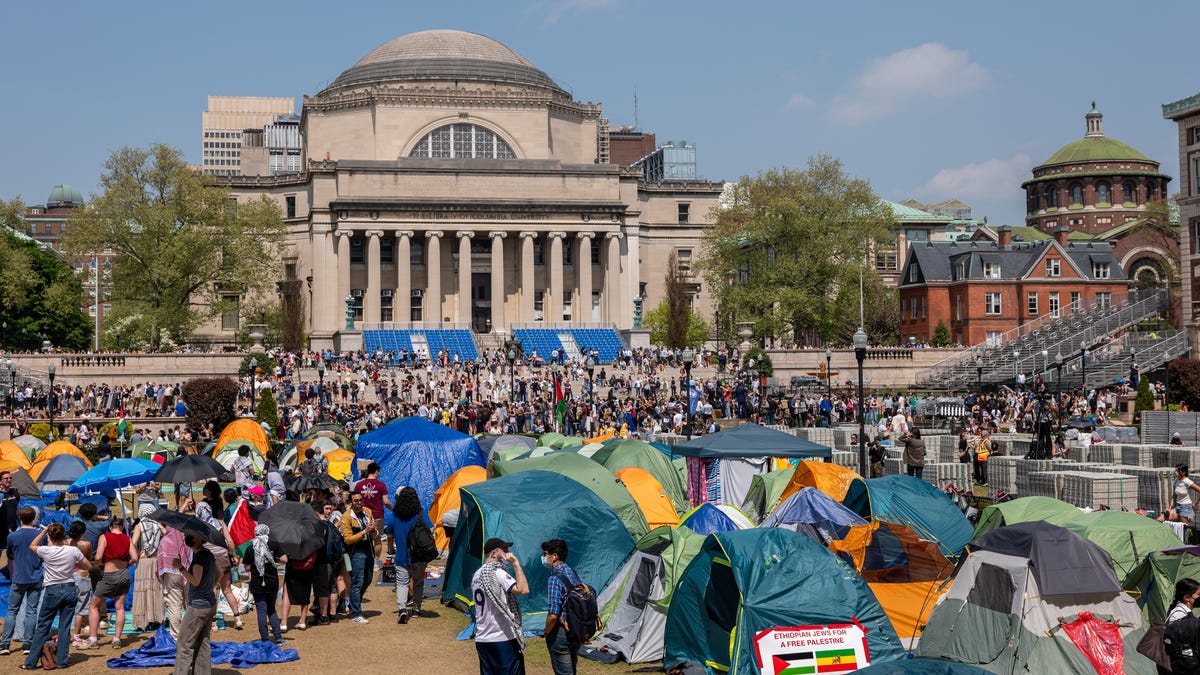Recent college protests latest in history of university demonstrations
Columbia, Yale, USC and others are the latest to see student demonstrations, but protesting on college campuses is nothing new in America.
NEW YORK — Students planning to renew a pro-Palestinian encampment at Columbia University were met with a swift response from school administrators.
University public safety officials said they would “immediately take steps to remove tents or other structures” and would instruct protesters to disperse, according to a campus email sent late on April 23. Those who refused to disperse would be identified and sanctioned, including the possibility of “removal from campus and possible arrest,” the email said.
A year ago, as the civilian casualties in Gaza mounted, protests at the New York City campus triggered encampments on college campuses across the United States and in several other countries. Demonstrators called on their schools to divest financially from Israel and its war effort.
Critics of the protests said they created an unsafe environment for Jewish students, especially after the Hamas-led attacks on southern Israel in October 2023.
NBC News first reported on plans of new encampments at Columbia. USA TODAY independently confirmed plans of encampments to begin the afternoon of April 24. A student protest group didn’t immediately respond to an email request for comment.
Since the protests a year ago, the university has heavily restricted campus access, drawing a lawsuit from neighbors in Manhattan who say Columbia is violating city and state laws permitting a passageway through campus.
The April 23 public safety email said campus access would be further restricted on April 24 and April 25.
University administration officials said in a statement that they were closely monitoring for disruptions and campus activities were proceeding as usual. Encampments are prohibited under university policies, and participating in any encampment could trigger violations of university rules, the statement said.
Last year, negotiations between university officials and protesters devolved amid the encampments. A group of protesters occupied a university building, creating what university officials described as escalatory, unsafe actions that reached “untenable” levels.
On April 30, 2024, university officials requested NYPD enter campus. Hundreds of police officers in riot gear stormed the building and surrounding area. More than 100 people were arrested at Columbia. Manhattan prosecutors later dropped most of the charges.
In subsequent months, students who participated in the demonstrations have faced suspension, expulsion and, for some international students, removal from the country.
The Trump administration has promised to crack down on those who participated in the encampments, which they have called antisemitic and laden with terrorist activity, often with presenting little evidence of such ties.
Mahmoud Khalil, a 30-year-old graduate student who is Palestinian, was a negotiator on behalf of the students. Despite being a lawful permanent resident, the Trump administration has detained him since March and has sought to strip him of his legal status because of his role in the protests. The administration denied a request for his release so he could be present as his wife gave birth to their first child on April 21.
Other Columbia students, including Ranjani Srinivasan, Yunseo Chung and Mohsen Mahdawi, have been forced to leave the country or detained for participating in last year’s protests. The students’ lawyers have argued they’ve been targeted for their speech.
In recent days, small encampments briefly formed at Yale University and Howard University, according to student newspapers.
